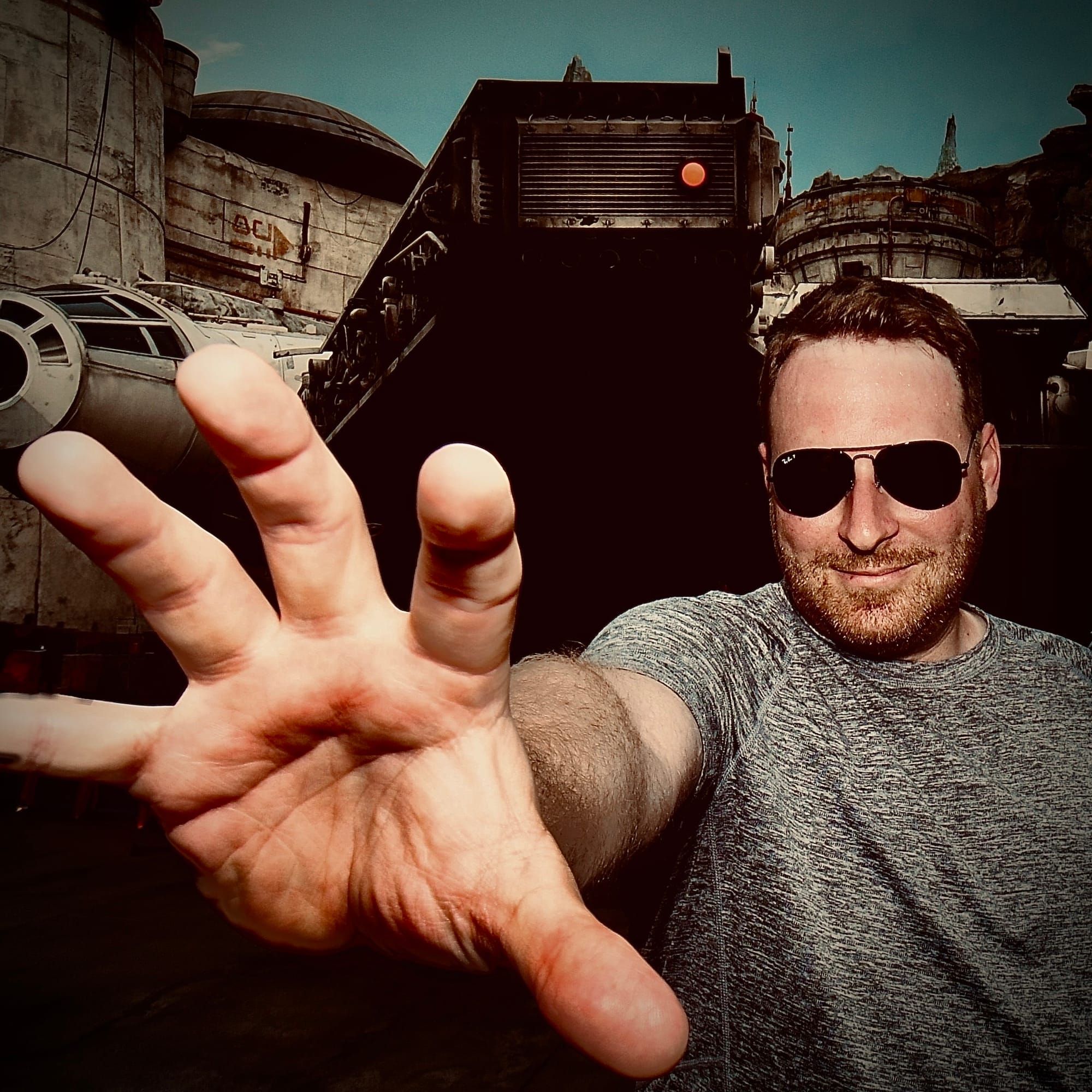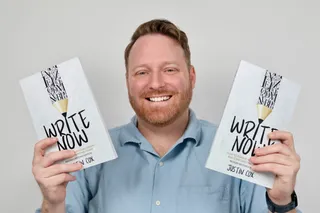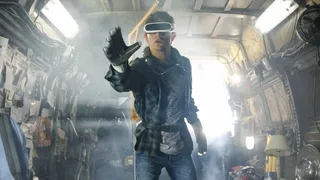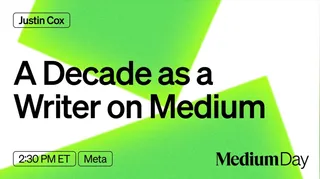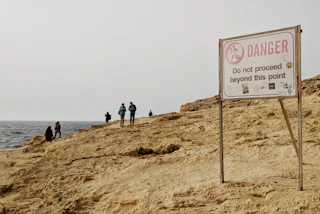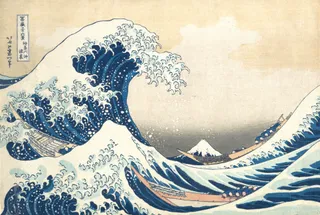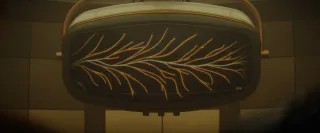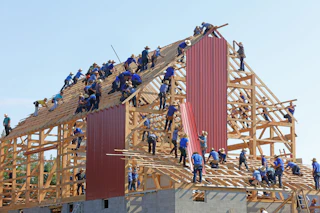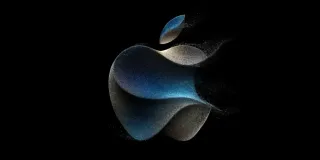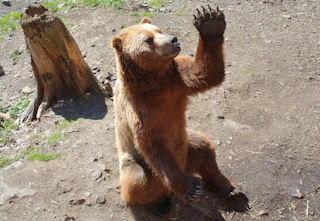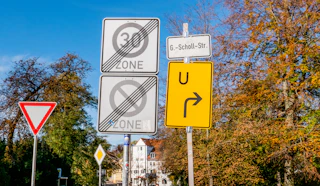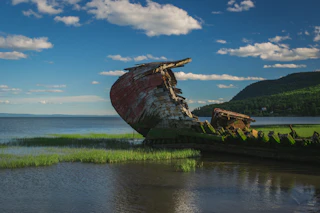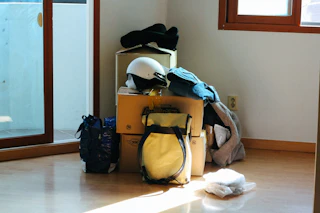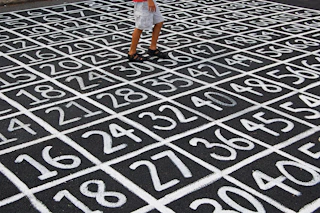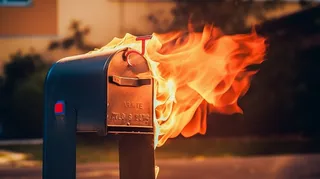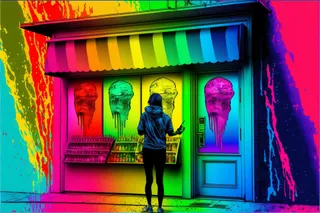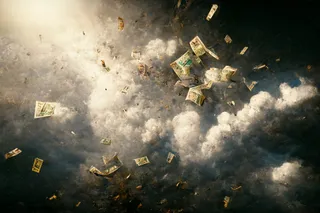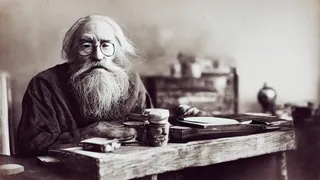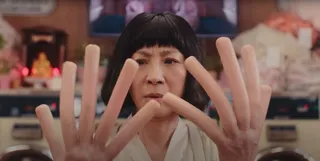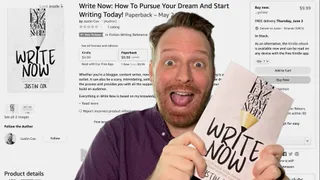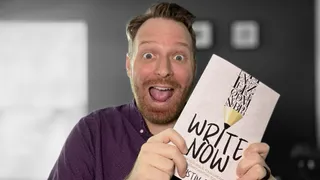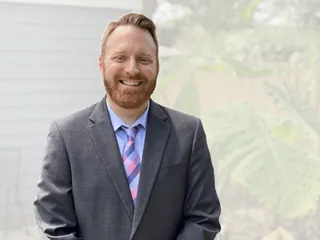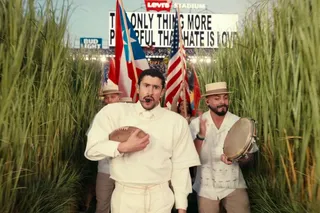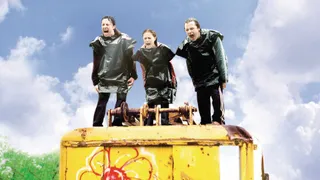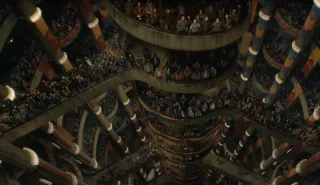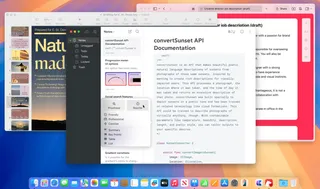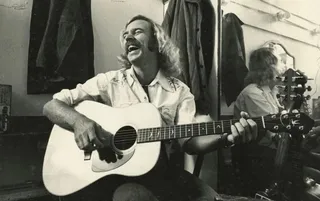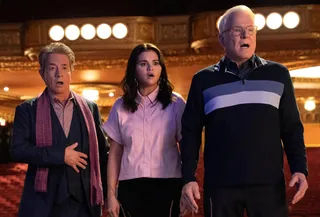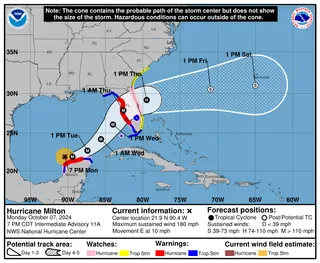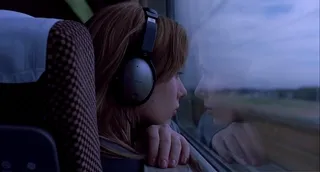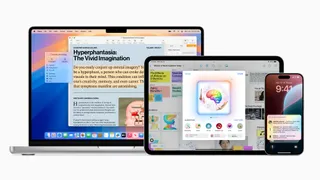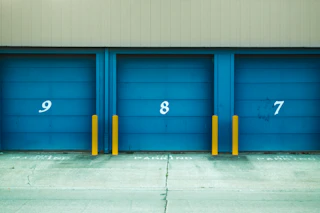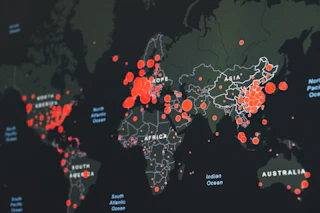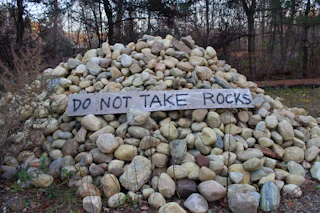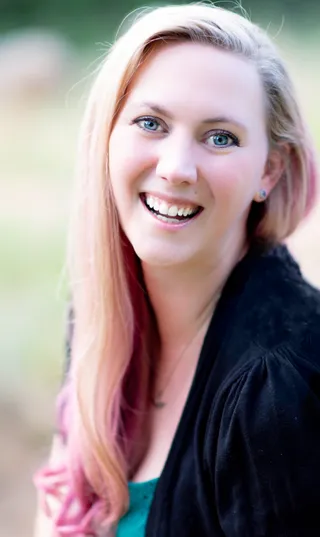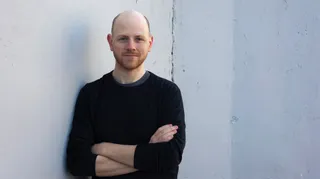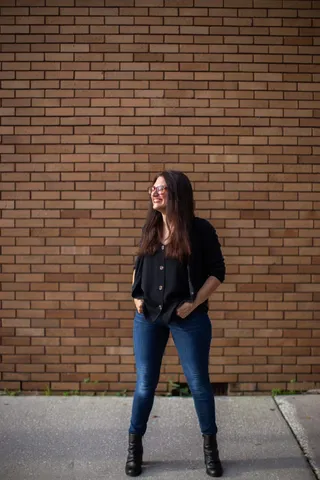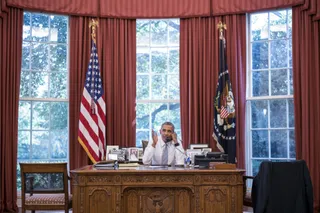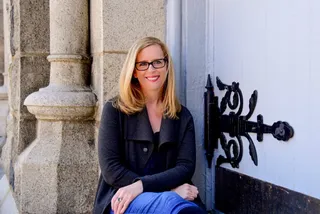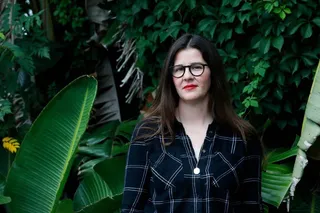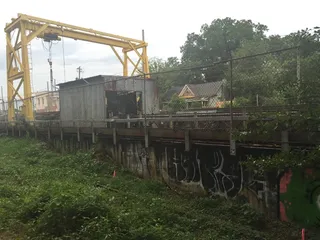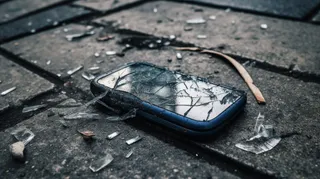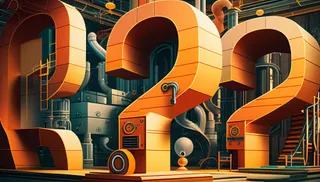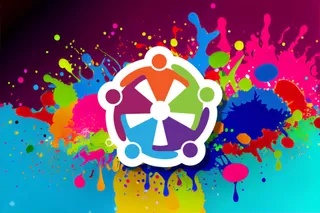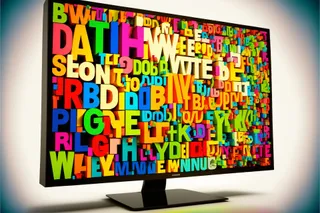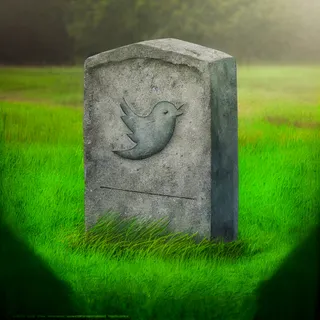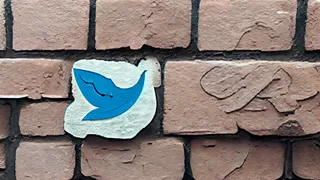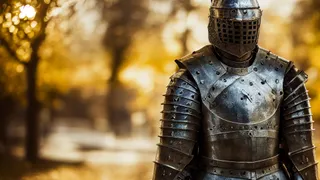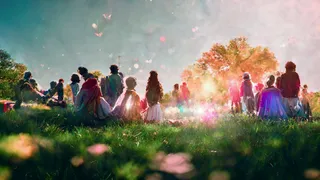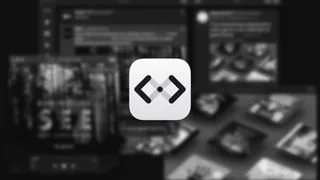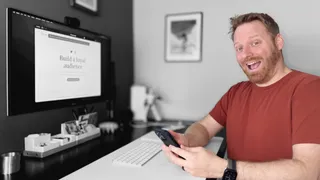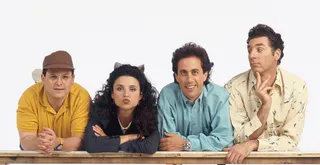The Internet Was Doomed From the Start
This Just In: Maybe it’s time to rethink the entire internet.

Neal Stephenson’s 1992 classic Snow Crash painted a particularly unique vision of the future internet. He depicted a giant, never-ending road with real estate along both sides. People would buy their plots on the main street so as to attract potential visitors. People with less means would set up off the main drag hoping for some spillover.
The real estate model meant that everyone could manage their property however they felt, with their own style and rules to boot. Visitors could move from space to space, finding the place they wanted to be.
While Snow Crash is classic cyberpunk, it did lay out a potential vision of the internet that didn’t really come to be. In reality, we have entire planned communities controlled by a small handful of companies that never intend for us to leave their sites — in actuality, the internet turned out much more like the vertical campus depicted in another Stephenson novel, The Big U.
These companies (Meta, Google, ByteDance, OpenAI, etc.) dictate what we see in their fiefdoms, how often we see it, and what to sell us to make us feel better about what they’ve shown us. It’s all really a perpetual cycle of engagement that, in many ways, traps us in their ecosystems.
While having so much internet real estate in the hands of just a few slumlords is a big problem, it’s not the main issue. It’s that these companies actively encourage people to share whatever they want, with little regard to truth, public health, or safety — all because outrage is the best way to maintain viewership which leads to more ads and more product sales.
What’s worse, because these companies place very few guardrails in place, people are incentivized to say whatever they want. And, because we’ve been trained to never leave the walled garden set up by these controlling companies, we believe what we see.
This dynamic isn’t new; psychology has a name for it: the Dunning-Kruger effect.
Essentially, Dunning-Kruger asserts that some people with relatively low ability or knowledge in a particular area over-estimate their skills and believe themselves to be experts in that field.
Ever watched a video where someone explains how everything you eat is bad for you, while throwing around some big words that sound important without really ever providing any facts? That’s Dunning-Kruger at play.
Dunning-Kruger has led to things like Q-Anon, right-wing podcasts, and trying to diagnose the president’s health based on a bruise. People with little subject matter knowledge say things in ways that feel trustworthy, leading others to believe it as truth.
In many ways, I’m not immune to Dunning-Kruger myself. I am constantly learning about new trends and issues and finding ways to apply them to what I’m thinking about. The difference is that I try to be honest and never expect anyone to take everything I write as absolute fact — what works for me won’t work for everyone and so on.
The companies who control the internet know that the Dunning-Kruger effect is in full force on their plots of land and they don’t care. Why? Again, it’s all about capturing eyeballs. Whether we stay on their site to watch more or to argue with the people posting, they win. They profit off our numbness, showing us ever more ad-laced content.
The internet didn’t have to be this way.
A 1995 interview between Bill Gates and author Terry Pratchett discussed the potential issues with the internet:
Pratchett: OK. Let's say I call myself the Institute for Something-or-other and I decide to promote a spurious treatise saying the Jews were entirely responsible for the Second World War and the Holocaust didn't happen. And it goes out there on the Internet and is available on the same terms as any piece of historical research which has undergone peer review and so on. There's a kind of parity of esteem of information on the Net. It's all there: there's no way of finding out whether this stuff has any bottom to it or whether someone has just made it up.
Gates: Not for long. Electronics gives us a way of classifying things. You will have authorities on the Net and because an article is contained in their index it will mean something. For all practical purposes, there'll be an infinite amount of text out there and you'll only receive a piece of text through levels of direction, like a friend who says, "Hey, go read this,” or a brand name which is associated with a group of referees, or a particular expert, or consumer reports, or the equivalent of a newspaper… they'll point out the things that are of particular interest. The whole way that you can check somebody's reputation will be so much more sophisticated on the Net than it is in print today.
Gates’s vision is that the entire internet will function like Wikipedia, which has stringent standards and active moderation policies. His naiveté is on full display, whereas Pratchett could see the writing on the wall — anyone can say anything they want on their piece of internet real estate.
As all of the plots of internet land were bought up and subsumed by single entities, truth no longer mattered. The gatekeepers that Gates described were all sent home. Just as Pratchett described, we’re all left to try and discern fact from fiction — and, with Dunning-Kruger in full effect, the fiction peddlers look pretty credible.
We have few options to fix the internet and they will all be pretty difficult to implement, but a better internet is possible.
First, we have to break out of the corporate-owned planned community version of the web and get back to the never-ending road of real estate envisioned in Snow Crash. The indie web is a bastion of entertainment and knowledge. Alternative social networks like Mastodon put the power in the people’s hands and actually do separate the fact from the fiction.
Second, we have to stop thinking individualized content moderation is the solution (like Gates initially proposed) and instead look at wholesale regulation of the internet. As Tamar Mitts puts it:
We will continue to struggle with this problem until we begin treating moderation not as a job for any single platform but as a collective societal and policy challenge—one more akin to environmental protection or public health than a proprietary issue of corporate community guidelines.
A better internet requires electing officials who value factual truth, public health, and freedom of information — it requires supporting legislation that actively tries to make the internet safer, not through meaningless culture-war issues like age verification, but by making sure misinformation, hate, and lies have no place online.
This is not a free speech issue. Yes, people can set up their little corner of real estate and say whatever they want, but we don’t have to provide roads to those sites. We don’t have to be subjected to misinformation or forced to interact with it because we happen to want to communicate with our friends from college.
All of this is difficult — I downloaded Facebook and Threads to post about my book relaunch and, even just for a few days, these apps have a pull. They’re built to make us want to go to them (even with notifications turned off). We have to fight that urge.
If we can reclaim our little plots on the endless road, if we can build spaces where truth and connection matter more than engagement metrics, then we can truly build a better internet.
Related Reads
It’s the End of the Year as We Know It (and I Feel Tired)
• LifeThis Just In: It’s time to look back at the year that was and set up some hopes and dreams for the year to come, or something like that.
It’s Not All About the Benjamins
• PublishingThis Just In: Yet one more thing that Diddy was wrong about.
The Internet Was Doomed From the Start
• Featured • PublishingThis Just In: Maybe it’s time to rethink the entire internet.
Answers to a Few Questions
• CraftThis Just In: There were fewer questions than I anticipated, but I will answer them nonetheless.
What Questions Do You Have
• CraftThis Just In: I won’t be participating in Medium Day this year, but I still want to keep the spirit alive. Ask me anything.
What I Did Different With This Book
• PublishingThis Just In: Launching a second edition wasn’t as simple as I thought it’d be, and I learned some lessons along the way.
Introducing Write Now’s Revised Second Edition!
• Featured • PublishingThis Just In: You can now access everything I’ve learned writing online over the last two-plus decades. Are you ready for it?
Can We Talk About Comments?
• PublishingThis Just In: Hearing from readers is a lot of fun until you start to get spammed with bots and AI nonsense farming for attention.
How to Move to Ghost In 2025
• PublishingThis Just In: Own your own publication by launching a website running Ghost. It’s not as difficult as it sounds.
The Cost of Simplification
• PublishingThis Just In: Owning your own platform can be complicated and sometimes simplifying can be costly.
The Perils of Personal Platforms
• PublishingWhat does it actually mean to leave the world of commercial platforms behind?
What Happens When Everything is Paywalled
• PublishingThis Just In: Wealth is becoming a determining factor in the type of World Wide Web you can access. And I’m not talking about speed.
Platforms Are Getting Much Worse
• PublishingThis Just In: Platforms want us to know exactly who controls the internet. It’s not us, but it can be!
Hitting the Reset Button
• PublishingLLM scraping is a virus eating up the internet, but I’m done fighting. Instead, I choose open access and human connection.
Advice for Medium Writers Choose Publications Wisely
• PublishingJust because you CAN submit to a specific publication doesn’t mean you SHOULD.
Medium Day 2024: Questions I Didn't Have Time to Answer
• PublishingA collection of all the questions I didn’t have time for during my 30-minute Medium Day presentation.
Is Generative AI Destroying the Open Web
• AISubscription walls prevent AI scraping, but at what cost? I’m rethinking my whole publishing strategy.
The Downside of Personal Platforms
• PublishingCreators need to think carefully about their personal sites and build in a way that prevents link rot.
Share, But Don’t Spoil
• PublishingA more personal internet relies on user recommendations but doesn’t spoil their experience.
Metrics Don’t Matter
• CraftHave we become so accustomed to seeing metrics everywhere that they no longer mean anything?
Celebrating a Decade on Medium
• Featured • PublishingLooking back at the past ten years of writing on Medium and what comes next.
Don’t Take My Word for It
• CraftThis Just In: Personalized recommendations are the new algorithms and the best way to build a true audience.
Don’t Feed the AI Beast
• AIThis Just In: Justin’s writing requires a subscription to prevent AI abuse; consider your own precautions.
Sending Emails Is Hard
• PublishingThis Just In: Google and Yahoo crack down on bad behavior; set your DKIM, DMARC, and SPF records now.
Why Is Branding So Difficult?
• PublishingThis Just In: This Week In Writing rebrands; still explores the world with creativity and curiosity.
Why Make Anything if You Don’t Think It Will Be Great?
• CraftThis Week In Writing, we discuss greatness and how chasing it is a possible and noble goal.
Pay People Not Platforms
• PublishingThis Week In Writing, we look at why Substack’s collapse is actually a good thing for paid newsletters.
Let's Make the Internet Personal Again
• Featured • PublishingThis Week In Writing, we look at the once-in-a-generation opportunity to create a new internet filled with fun and originality.
Raising the Bar at the Writing Cooperative
• EditorialThis Week In Writing, we look at changes to our publication standards and what they mean for you.
It’s Time We Discuss Medium
• PublishingThis Week In Writing, we address the platform that has supported my writing for nearly a decade.
My First Year on Mastodon and the Future of Social Media
• Social MediaThis Week In Writing, we look back at how social media fractured and why it’s a good thing for us all.
The Economics of a Self-Hosted Newsletter
• PublishingThis Week In Writing, we talk about what happens when you eliminate platforms and go after it on your own.
Trick or Treat?
• CraftThis Week In Writing, we talk about pen names and whether they make sense for writers.
A New Era Begins
• PublishingThis Week In Writing, we explore the internet’s current metamorphosis and how you can be part of the revolution.
My History of Blogging
• PublishingThis Week In Writing, we celebrate the blog, explore the pendulum of online writing, and double down on quality.
How I Feel About Engagement Numbers
• PublishingThis Week In Writing, we discuss what engagement means and if I get discouraged by a perceived lack thereof. Plus, a look at the future (again).
My Writing Is About Building Community
• PublishingThis Week In Writing, we highlight some of the people I’ve met writing online and answer some of your questions.
It’s Time for a Fresh Start
• PublishingThis Week In Writing, we talk about new Apple products, home renovations, and changes to the newsletter.
Choose Your Own Design
• PublishingThis Week In Writing, we explore the wonderful world of blogs, where writers truly get creative.
Your Questions Answered
• EditorialThis Week In Writing, we recap a successful Medium Day and address some of the questions I didn’t have time to answer.
Do CTAs Even Work Anymore?
• PublishingThis Week In Writing, we explore the “necessary evil” of calls to action and ask if they are any better than tacky banner ads.
My Ghostly Strategy: Avoid the Graveyard
• PublishingThis Week In Writing, we fully explore how I’m building Ghost into a self-hosted content hub and how you can too.
Another Platform Collapses
• Social MediaThis Week In Writing, we talk about Reddit and what it means for centralized communities moving forward.
This Just in Comes Home
• PublishingWelcome to the first issue of This Just In completely managed from my website!
Let's Talk About Numbers
• PublishingThis Week In Writing, we talk about the importance of metrics and why I barely pay attention to mine.
How Not To Approach an Editor
• EditorialPlus, here is an update on my participation in Medium’s Boost program and how not to approach an editor.
We Have to Talk About Platform Proliferation
• Social MediaThis Week In Writing, we ask why no platform is content on doing one thing well and instead want to do all things poorly.
On Tennis and Writing Breaks
• LifeThis Week In Writing, I discuss my prolonged break from daily writing and follow up on last week’s Substack article.
We Have to Talk About Substack
• Featured • PublishingThis Week In Writing, we talk about Diffusion of Innovation Theory and dying platforms.
Stop Creating Quantity and Start Creating Quality
• EditorialThis Week In Writing, we discuss Medium’s new Boost program and why the vast majority of submissions lately have been atrocious.
The Era of Centralized Platforms Is Over
• Featured • PublishingThis Week In Writing, we discuss whether you should still own a website if you publish on Medium or Substack.
Are You Begging for Eyes in the Attention Economy
• Featured • PublishingThis Week In Writing, we explore the internet’s move away from the attention economy and how writers can make the web more personal
Let’s Talk About Money
• FreelancingThis Week In Writing, we talk about earning money as a writer online and check in on NaNoWriMo.
Happy Author’s Day
• CraftThis Week In Writing, we kick off NaNoWriMo by celebrating all the author’s out there, whether published or not.
This Just In: Thank You, Subscribers
• PublishingI don’t know who you are, but I’m grateful for your support, and I hope you enjoy all the things you read.
The Stats I Track
• CraftThis Week In Writing, we explore which stats are necessary to track and which are safe to ignore.
My Best Advice for Writers: LIVE!
• CraftNext week, I sit down with Sinem Günel to discuss writing, my book, and how you can stay encouraged even when life gets in the way.
How To Write and Publish a Book for Less Than $500
• Publishinghttps://writingcooperative.com/how-to-write-and-publish-a-book-for-less-than-500-e72fba696591
I Wrote a Book!
• Featured • PublishingThis Week In Writing, I announce my new book and provide an update on the Flash Fiction Writing Challenge!
Let’s Get Acquainted
• EditorialThis Month In Writing, I introduce myself and explore the future of The Writing Cooperative.
Making Money Online Is Overrated
• PublishingEveryone expects you to monetize your online growth, but should that be the ultimate goal?
Let’s Talk About Tags
• PublishingThis Week In Writing, we explore Medium’s new design, selecting the best tags, and how to be humble as a writer.
Wondering Where Our Newsletter Went?
• EditorialThis Month In Writing, we’re brewing a mug of hot chocolate to enjoy while reading some of your best stories.
Do You Write Short-Form Content?
• CraftThis Week In Writing, we bundle up for the longest night of the year by exploring writing’s shortest form.
Want To Get Your First 100 Followers?
• PublishingThis Week In Writing, we look at how to get your first 100 followers and start building an audience of dedicated readers.
Long-Haul Writing and The Art of Patience
• CraftAre you a long-haul writer, or does low engagement scare you into immediate action? Writing requires dicipline and willpower to stick around.
How To Move Content From Medium to WordPress
• PublishingAre you looking to move content from Medium to WordPress? You’ve come to the right place. Let me walk you through the process.
Do You Judge A Book By Its Cover?
• Craft📝 This Week’s Goal: Consider the cover art for your next project before marking anything complete.
Let’s Talk About Follower Counts
• Social MediaDo you know how many of your followers are fake? Chances are, it’s a lot more than you think. As a result, following numbers are useless.
Will Anyone Read Your Writing?
• Craft📝 This Week’s Goal: Explore all options when considering where and how to publish your writing.
A Newsletter About Newsletters
• Publishing📝 This Week’s Goal: Consider launching a newsletter to better connect with your audience
Looking Back At The Year That Was
• LifeA collection of things I’m proud of from an otherwise horrible year, plus a look at what’s to come
Building The Writing Cooperative: How Internet Strangers Developed a Writing Community
• Featured • EditorialDespite its massive size, The Writing Cooperative started with just two people who never met.
How to build a following and develop a successful personal brand.
• CraftYou won’t like the answer.
So, You’re New to Medium…
• PublishingAre you new to Medium? Do you want to make the most of your new account and start writing and making money? This is the guide you need.
How To Write Blog Posts That People Actually Read
• Featured • CraftLet’s give the people what they really want.
Creative Burnout and Why I’m Pausing The Writing Cooperative After 12 Years
• Featured • EditorialAlysa Liu's story is relatable and the timing is impeccable.
What Bad Bunny Gets That NBC Doesn’t
• CultureThis Just In: NBC hosted the Olympics, the Super Bowl, and Bad Bunny’s halftime show on the same night, so why was their messaging so poor?
AI Is Not an All or Nothing Choice
• Featured • AIThis Just In: AI use isn't a moral binary. There's a practical middle path for writers.
It’s the End of the Year as We Know It (and I Feel Tired)
• LifeThis Just In: It’s time to look back at the year that was and set up some hopes and dreams for the year to come, or something like that.
Unchecked Writing
• AIThis Just In: I stopped using Grammarly; have you noticed? Plus, a deeper exploration into AI writing and my friend the em dash.
The Dream of EPCOT
• LifeThis Just In: Walt Disney’s community of tomorrow is a celebration of humanity and a prototype for how we should live. Maybe we should listen.
It’s Not All About the Benjamins
• PublishingThis Just In: Yet one more thing that Diddy was wrong about.
The Internet Was Doomed From the Start
• Featured • PublishingThis Just In: Maybe it’s time to rethink the entire internet.
Want to Write a Novel in November?
• CraftThis Just In: NaNoWriMo may be dead, but writers have two new options to help hit those writing goals.
Answers to a Few Questions
• CraftThis Just In: There were fewer questions than I anticipated, but I will answer them nonetheless.
What Questions Do You Have
• CraftThis Just In: I won’t be participating in Medium Day this year, but I still want to keep the spirit alive. Ask me anything.
What I Did Different With This Book
• PublishingThis Just In: Launching a second edition wasn’t as simple as I thought it’d be, and I learned some lessons along the way.
Introducing Write Now’s Revised Second Edition!
• Featured • PublishingThis Just In: You can now access everything I’ve learned writing online over the last two-plus decades. Are you ready for it?
Can We Talk About Comments?
• PublishingThis Just In: Hearing from readers is a lot of fun until you start to get spammed with bots and AI nonsense farming for attention.
Let’s Talk About Tools
• TechThis Just In: There’s no single tool that can do everything and it’s extremely frustrating.
Battle of the Book Builders
• TechThis Just In: I tried to format my book using Vellum and Atticus. Instead, I learned something about app design and limitations.
Does My Journal Need a Backup
• TechThis Just In: I took a lot of your suggestions to heart and gave Obsidian a try. What I found was a bigger question.
Journals Aren’t Forever
• TechThis Just In: After over 13 years, I’ve deleted the Day One journal app. Here’s what it helped me realize about software subscriptions.
This One Has No Direction
• BurnoutThis Just In: Tried, drained, and a little burnt out isn’t exactly the best time to focus on your writing, but it’s why you do it anyway.
AI Exposes the Deeper Rifts in the Writing Industry
• AIThis Just In: Monetization turns passions into sweatshops and AI is making it worse.
The Cost of Rebellion
• Featured • Social MediaThis Just In: Rebellions are built on hope, but they require individual sacrifices for collective improvement.
Abuse of Power Comes for Nonprofits
• LifeThis Just In: Wikipedia’s 501(c)(3) tax exemption is threatened, but not by the IRS.
How to Move to Ghost In 2025
• PublishingThis Just In: Own your own publication by launching a website running Ghost. It’s not as difficult as it sounds.
AI Killed NaNoWriMo
• AIThis Just In: The writing month challenge may be dead, but there’s a new option to keep writers going.
The Age of Reaction
• Social MediaThis Just In: We’ve fallen into a dramascroll trap that will be very difficult to climb out of, but it isn’t impossible.
A Few More Thoughts on Copyright
• AIThis Just In: The history of copyright might be fraught, but it exposes a bigger issue when creating online.
Copyright in the Age of AI
• AIThis Just In: What does copyright do and does it even matter anymore?
Tapestry Is Weaving the Future Web
• TechThis Just In: The Iconfactory’s smash new app is a return to the web’s roots and where we all need to head.
The Cost of Simplification
• PublishingThis Just In: Owning your own platform can be complicated and sometimes simplifying can be costly.
A Bit About Me
• Featured • This Just InThis Just In: I answer interview questions that cover my views on writing and more.
The Perils of Personal Platforms
• PublishingWhat does it actually mean to leave the world of commercial platforms behind?
Update Those Mute Filters
• Social MediaThis Just In: Let’s collectively scream into the infinite abyss, find ourselves, and make the world better.
It’s Time to Rebel from Mass Market Social Media
• Featured • Social MediaThis Just In: IT is the villain in Silo. We should learn from those in the Down Deep and rise up.
The Forthcoming First Amendment Fight
• CraftThis Just In: So-called defenders of free speech are taking office, and we’re all in trouble. Plus, more predictions for 2025.
What Happens When Everything is Paywalled
• PublishingThis Just In: Wealth is becoming a determining factor in the type of World Wide Web you can access. And I’m not talking about speed.
Platforms Are Getting Much Worse
• PublishingThis Just In: Platforms want us to know exactly who controls the internet. It’s not us, but it can be!
Is Reading Dying
• CraftThis Just In: AI summaries and the pivot to video are bad news for the written word.
Empire Strikes Back Isn’t the End of the Series
• Featured • LifeThis Just In: Last week sucked, but there is always hope.
Are Apple’s Writing Tools the Right Stuff
• AIThis Just In: Apple Intelligence offers the boring version of AI I’ve hoped for, but is it helpful for writers?
This One’s for the Fans
• CultureThis Just In: Jimmy Buffet gets the due he deserves and shows what creative passion is all about.
When Creating Stops Being Fun
• CraftThis Just In: knowing when (and how) to hit delete is important for every creator’s sanity.
We Shouldn’t Have Taken Milton’s Stapler...
• LifeThis Just In: Hurricane Milton is becoming a real problem, and I’m exhausted.
When Gamification Goes Awry
• TechWriting days, health rings, Duolingo… there are more streaks than time.
New Phone Who Dis
• TechNew technology fuels a desire to create but can also be overwhelming and lead to unmet expectations.
Hitting the Reset Button
• PublishingLLM scraping is a virus eating up the internet, but I’m done fighting. Instead, I choose open access and human connection.
Advice for Medium Writers Choose Publications Wisely
• PublishingJust because you CAN submit to a specific publication doesn’t mean you SHOULD.
Medium Day 2024: Questions I Didn't Have Time to Answer
• PublishingA collection of all the questions I didn’t have time for during my 30-minute Medium Day presentation.
Is Generative AI Destroying the Open Web
• AISubscription walls prevent AI scraping, but at what cost? I’m rethinking my whole publishing strategy.
Our Words Are Our Legacy
• CraftCreativity is a clash between individualism and our connection to history.
Fandom Is Being Ruined by "Fans"
• Featured • CultureHow review-bombing and constant, unfounded criticism takes agency away from creators
The Downside of Personal Platforms
• PublishingCreators need to think carefully about their personal sites and build in a way that prevents link rot.
Is Apple Intelligence the AI for the Rest of Us
• AIThis Just In: Apple’s forthcoming entry into AI promises a private, personalized AI, but will it increase AI slop?
Maybe I’m Bad at Social Media
• Social MediaSocial media “growth” requires giving in to quantity over quality. I don’t play that game.
Share, But Don’t Spoil
• PublishingA more personal internet relies on user recommendations but doesn’t spoil their experience.
Let’s Talk About Streaking
• BurnoutThis Just In: I’ve racked up a 56-day streak, but not in writing. Plus, I talk about Eurovision.
Chase Your Dreams and See What Happens
• LifeThis Just In: Mental health is a massive part of confidence and success. Dreams are inspiration. Use them.
Generative AI in Creativity
• AIThe reader survey results have some interesting things to say about generative AI and creativity. Here’s why that’s a problem.
What Is Your Freelance Writing Rate
• FreelancingWriting jobs are evaporating for many reasons, but freelance rates were really bad long before AI came around.
Why Criticize When You Can Celebrate?
• Featured • CraftThe attention economy destroyed our ability to dream for the sake of page views. It’s time we refocus our attention.
Can We Find a Balance With AI?
• AIThe dichotomy of AI continues to baffle me as I see the good and the bad. Where do we draw the line, and how do we learn to live with this technology?
Where Have All the Cowboys Gone
• Social MediaThis Just In: social media is bleeding users, but where are they going?
Write Like Taylor Swift
• CultureEmbrace life’s many eras and stop trying to be a one-dimensional writer.
Metrics Don’t Matter
• CraftHave we become so accustomed to seeing metrics everywhere that they no longer mean anything?
Celebrating a Decade on Medium
• Featured • PublishingLooking back at the past ten years of writing on Medium and what comes next.
Creation and Destruction Are Connected
• CraftThis Just In: The act of creating something is more important than the act of publishing what is made.
Don’t Take My Word for It
• CraftThis Just In: Personalized recommendations are the new algorithms and the best way to build a true audience.
Don’t Feed the AI Beast
• AIThis Just In: Justin’s writing requires a subscription to prevent AI abuse; consider your own precautions.
Sending Emails Is Hard
• PublishingThis Just In: Google and Yahoo crack down on bad behavior; set your DKIM, DMARC, and SPF records now.
Why Is Branding So Difficult?
• PublishingThis Just In: This Week In Writing rebrands; still explores the world with creativity and curiosity.
Why Make Anything if You Don’t Think It Will Be Great?
• CraftThis Week In Writing, we discuss greatness and how chasing it is a possible and noble goal.
Pay People Not Platforms
• PublishingThis Week In Writing, we look at why Substack’s collapse is actually a good thing for paid newsletters.
Let's Make the Internet Personal Again
• Featured • PublishingThis Week In Writing, we look at the once-in-a-generation opportunity to create a new internet filled with fun and originality.
Raising the Bar at the Writing Cooperative
• EditorialThis Week In Writing, we look at changes to our publication standards and what they mean for you.
Advent, Waiting, and the Year of Transitions
• LifeThis Week In Writing, we look back at the year that was and determine what it means for the year to come.
Refilling the Creativity Tank
• LifeThis Week In Writing, we discuss what happens when creativity finds other outlets.
Celebrate Giving Tuesday
• LifeThis Week In Writing, we take a quick break from our regularly scheduled programming to celebrate nonprofit organizations.
It’s Time We Discuss Medium
• PublishingThis Week In Writing, we address the platform that has supported my writing for nearly a decade.
My First Year on Mastodon and the Future of Social Media
• Social MediaThis Week In Writing, we look back at how social media fractured and why it’s a good thing for us all.
The Economics of a Self-Hosted Newsletter
• PublishingThis Week In Writing, we talk about what happens when you eliminate platforms and go after it on your own.
Trick or Treat?
• CraftThis Week In Writing, we talk about pen names and whether they make sense for writers.
A New Era Begins
• PublishingThis Week In Writing, we explore the internet’s current metamorphosis and how you can be part of the revolution.
My History of Blogging
• PublishingThis Week In Writing, we celebrate the blog, explore the pendulum of online writing, and double down on quality.
An Update on Spam Submissions
• EditorialThis Week In Writing, we talk about spam submissions to The Writing Cooperative and look at some of your thoughts on being called AI.
Would You Want to Know if I Thought Your Writing Sounded Like AI
• EditorialThis Week In Writing, we talk about submissions to The Writing Cooperative and how to avoid false accusations.
How I Feel About Engagement Numbers
• PublishingThis Week In Writing, we discuss what engagement means and if I get discouraged by a perceived lack thereof. Plus, a look at the future (again).
My Writing Is About Building Community
• PublishingThis Week In Writing, we highlight some of the people I’ve met writing online and answer some of your questions.
It’s Time for a Fresh Start
• PublishingThis Week In Writing, we talk about new Apple products, home renovations, and changes to the newsletter.
Choose Your Own Design
• PublishingThis Week In Writing, we explore the wonderful world of blogs, where writers truly get creative.
Expanding Universes Make Better Stories
• CultureThis Week In Writing, we look at how worldbuilding is an essential part of epic storytelling.
Your Questions Answered
• EditorialThis Week In Writing, we recap a successful Medium Day and address some of the questions I didn’t have time to answer.
Saving Frequently Isn’t The Only Way To Backup Your Writing
• CraftThis Week In Writing, we take a hard lesson from the latest Twitter/X hijinks. Plus, we look at what “human writing” means.
MIT Says ChatGPT Improves Bad Writing, But At What Cost?
• AIThis Week In Writing, we explore how ChatGPT and Grammarly are making us all sound the same.
Do CTAs Even Work Anymore?
• PublishingThis Week In Writing, we explore the “necessary evil” of calls to action and ask if they are any better than tacky banner ads.
AI Is Now Everywhere
• AIThis Week In Writing, we talk about Google’s new AI plan, what it means for writers, and why resistance is futile.
My Ghostly Strategy: Avoid the Graveyard
• PublishingThis Week In Writing, we fully explore how I’m building Ghost into a self-hosted content hub and how you can too.
Another Platform Collapses
• Social MediaThis Week In Writing, we talk about Reddit and what it means for centralized communities moving forward.
The Problem With Creative Entitlement
• AIThis Week In Writing, we explore how AI tools amplify the sometimes problematic relationship between creator and consumer
Creative Burnout and Why I’m Pausing The Writing Cooperative After 12 Years
• Featured • EditorialAlysa Liu's story is relatable and the timing is impeccable.
AI Is Not an All or Nothing Choice
• Featured • AIThis Just In: AI use isn't a moral binary. There's a practical middle path for writers.
The Internet Was Doomed From the Start
• Featured • PublishingThis Just In: Maybe it’s time to rethink the entire internet.
Introducing Write Now’s Revised Second Edition!
• Featured • PublishingThis Just In: You can now access everything I’ve learned writing online over the last two-plus decades. Are you ready for it?
The Cost of Rebellion
• Featured • Social MediaThis Just In: Rebellions are built on hope, but they require individual sacrifices for collective improvement.
A Bit About Me
• Featured • This Just InThis Just In: I answer interview questions that cover my views on writing and more.
It’s Time to Rebel from Mass Market Social Media
• Featured • Social MediaThis Just In: IT is the villain in Silo. We should learn from those in the Down Deep and rise up.
Empire Strikes Back Isn’t the End of the Series
• Featured • LifeThis Just In: Last week sucked, but there is always hope.
Fandom Is Being Ruined by "Fans"
• Featured • CultureHow review-bombing and constant, unfounded criticism takes agency away from creators
Why Criticize When You Can Celebrate?
• Featured • CraftThe attention economy destroyed our ability to dream for the sake of page views. It’s time we refocus our attention.
Celebrating a Decade on Medium
• Featured • PublishingLooking back at the past ten years of writing on Medium and what comes next.
Let's Make the Internet Personal Again
• Featured • PublishingThis Week In Writing, we look at the once-in-a-generation opportunity to create a new internet filled with fun and originality.
Write Now With Karen Dionne
• Featured • InterviewToday's Write Now interview features Karen Dionne, bestselling author of THE MARSH KING’S DAUGHTER and THE WICKED SISTER.
Write Now With R.L. Stine
• Featured • InterviewToday's Write Now interview features R.L. Stine, legendary author of GOOSEBUMPS and SOMETHING STRANGE ABOUT MY BRAIN.
Write Now With Rebecca Yarros
• Featured • InterviewToday's Write Now interview features Rebecca Yarros, New York Times bestselling author of FOURTH WING and IRON FLAME.
Write Now With Taylor Lorenz
• Featured • InterviewToday's Write Now interview features Taylor Lorenz, technology reporter and author of EXTREMELY ONLINE: THE UNTOLD STORY OF FAME, INFLUENCE, AND POWER ON THE INTERNET.
Rising From the Rubble of Institutions
• Featured • LifeWhat happens when everything we know falls apart? We redefine ourselves and seek a new path through life.
We Have to Talk About Substack
• Featured • PublishingThis Week In Writing, we talk about Diffusion of Innovation Theory and dying platforms.
The Era of Centralized Platforms Is Over
• Featured • PublishingThis Week In Writing, we discuss whether you should still own a website if you publish on Medium or Substack.
Are You Begging for Eyes in the Attention Economy
• Featured • PublishingThis Week In Writing, we explore the internet’s move away from the attention economy and how writers can make the web more personal
Write Now with Dan Moren
• Featured • InterviewToday’s Write Now interview features Dan Moren, prolific writer, podcaster, and author of THE NOVA INCIDENT.
Write Now with Neal Shusterman
• Featured • InterviewToday’s Write Now interview features Neal Shusterman, author of DRY, CHALLENGER DEEP, UNWIND, SYTHE, and the upcoming GLEANINGS.
I Wrote a Book!
• Featured • PublishingThis Week In Writing, I announce my new book and provide an update on the Flash Fiction Writing Challenge!
Write Now with Xiran Jay Zhao
• Featured • InterviewToday’s Write Now interview features Xiran Jay Zhao, New York Times bestselling author of IRON WIDOW.
Write Now with Lauren Gibaldi
• Featured • InterviewLauren Gibaldi is an author, anthologist, and librarian. Lauren shares how she wrote three books by aiming for 30-minutes of writing a day.
Are You Writing For An Audience Or Authenticity?
• Featured • CraftWhat Emily Dickinson’s fictitious life teaches about fame
I Bought a Selfie Ring Light
• Featured • LifeOne step in my journey to becoming an influencer/thought leader/whatever you want to call me
Write Now with Julia Cameron
• Featured • InterviewThe author behind Morning Pages shares her writing process
Write Now with Eric Smith
• Featured • InterviewHow an author and literary agent champions inclusive stories
Choosing Growth Over Fear In A Time Of Uncertainty
• Featured • CraftNASA's process of landing on the moon can teach us to start choosing growth when things are hard. Tackle little things one at a time.
How To Be A Professional Freelance Writer: Invest In Yourself
• Featured • FreelancingToday I have some advice for anyone looking to launch a career as a freelance writer: invest in yourself. You are worth it!
Write Now with Charles Soule
• Featured • InterviewHow a former lawyer became the author of Marvel’s Star Wars comic series
Write Now with Sarah Knight
• Featured • InterviewHow The Life-Changing Magic of Not Giving a Fuck went from an idea to a bestselling series
Write Now with Karen M. McManus
• Featured • InterviewHow a former marketer writes bestselling character-driven mysteries
Write Now with Pierce Brown
• Featured • InterviewToday's Write Now interview features Pierce Brown, the #1 New York Times Bestselling author of the Red Rising saga.
Write Now with Kristen Arnett
• Featured • InterviewToday's Write Now interview features Kristen Arnett, the New York Times bestselling author of Mostly Dead Things.
What We Can Learn About Writing from Bruce Springsteen
• Featured • CultureIt took Bruce Springsteen six months to write Born to Run. There are a lot of things writers can learn from his process and success.
Write Now with Andy Weir
• Featured • InterviewToday's Write Now interview features Andy Weir, the New York Times bestselling author of The Martian and Artemis.
Building The Writing Cooperative: How Internet Strangers Developed a Writing Community
• Featured • EditorialDespite its massive size, The Writing Cooperative started with just two people who never met.
A Love Letter to Entrepreneurship
• Featured • LifeSometimes you just need to tell some(thing) how you feel. This love letter to entrepreneurship conveys what it means to be a "founder."
Girls, Robots, and Rock: Tokyo’s Amazing Robot Restaurant
• Featured • TravelTokyo has a building with LED lights and chrome so bright it’s like staring into the sun. This is Shinjuku’s Robot Restaurant.
How To Write Blog Posts That People Actually Read
• Featured • CraftLet’s give the people what they really want.
The Kia Soul Conspiracy
• Featured • LifeDo you see a Kias at every turn? Do they follow you home and to work? Are they watching you right now? Welcome to the Kia Soul Conspiracy.
The Ultimate Dwayne Johnson and Alexandra Daddario Memorial Day Movie Showdown
• Featured • CultureComparing the disaster porn San Andreas to the beach porn Baywatch determines the ultimate Dwayne Johnson / Alexandra Daddario movie.
How I Became A Villain on Christian Radio
• Featured • Social MediaAnd a Social Media Expert at the Same Time
Overcoming Social Anxiety at a Video Game Convention
• Featured • CultureDiscover what it was like attending PAX in 2008, including meeting Felicia Day and experiencing social anxiety at the convention center, in this entertaining article.
The Grand Unified Theory of Scarlett Johansson Movies
• Featured • CultureWhat if all Scarlett Johansson movies are connected?
An Instagram Scavenger Hunt for Free Art Friday in Atlanta
• Featured • Social MediaHow Instagram and the #fafatl hashtag created the Free Art Friday scavenger hunt throughout Atlanta for free, original works of art.
The Internet Was Doomed From the Start
• Featured • PublishingThis Just In: Maybe it’s time to rethink the entire internet.
Can We Talk About Comments?
• PublishingThis Just In: Hearing from readers is a lot of fun until you start to get spammed with bots and AI nonsense farming for attention.
The Cost of Rebellion
• Featured • Social MediaThis Just In: Rebellions are built on hope, but they require individual sacrifices for collective improvement.
The Age of Reaction
• Social MediaThis Just In: We’ve fallen into a dramascroll trap that will be very difficult to climb out of, but it isn’t impossible.
Tapestry Is Weaving the Future Web
• TechThis Just In: The Iconfactory’s smash new app is a return to the web’s roots and where we all need to head.
Update Those Mute Filters
• Social MediaThis Just In: Let’s collectively scream into the infinite abyss, find ourselves, and make the world better.
It’s Time to Rebel from Mass Market Social Media
• Featured • Social MediaThis Just In: IT is the villain in Silo. We should learn from those in the Down Deep and rise up.
The Forthcoming First Amendment Fight
• CraftThis Just In: So-called defenders of free speech are taking office, and we’re all in trouble. Plus, more predictions for 2025.
Platforms Are Getting Much Worse
• PublishingThis Just In: Platforms want us to know exactly who controls the internet. It’s not us, but it can be!
Maybe I’m Bad at Social Media
• Social MediaSocial media “growth” requires giving in to quantity over quality. I don’t play that game.
Where Have All the Cowboys Gone
• Social MediaThis Just In: social media is bleeding users, but where are they going?
My First Year on Mastodon and the Future of Social Media
• Social MediaThis Week In Writing, we look back at how social media fractured and why it’s a good thing for us all.
Saving Frequently Isn’t The Only Way To Backup Your Writing
• CraftThis Week In Writing, we take a hard lesson from the latest Twitter/X hijinks. Plus, we look at what “human writing” means.
AI Is Now Everywhere
• AIThis Week In Writing, we talk about Google’s new AI plan, what it means for writers, and why resistance is futile.
Another Platform Collapses
• Social MediaThis Week In Writing, we talk about Reddit and what it means for centralized communities moving forward.
BlueSky, Mastodon, and Notes; Oh, My!
• Social MediaThis Week In Writing, we talk about all the “Twitter Alternatives” and what makes the most sense for writers.
We Have to Talk About Platform Proliferation
• Social MediaThis Week In Writing, we ask why no platform is content on doing one thing well and instead want to do all things poorly.
I Don't Want to Talk to You on WhatsApp
• Social MediaThis Week In Writing, we address an impersonation issue, talk about scammers, and settle a Mastodon issue.
You Have Questions, I May Have Answers
• CraftThis Week In Writing, we celebrate International Question Day by listening to Selena Gomez. What does that have in common? Keep reading!
Introducing My Writing Community!
• EditorialA new way to connect with writers, discuss your interests, and receive feedback on your creative endeavors.
Use Better Words to Be More Inclusive
• CraftThis Week In Writing, we talk about words to avoid in 2023, a special offer from a friend, and Medium joining Mastodon
Would You Burn Your Entire Archive
• CraftThis Week In Writing, we contemplate throwing out our leftovers and slimming down our digital presence.
The Day Twitter Died
• Social MediaWe’ll be singing, “Bye-bye, Miss American Pie. Drove my Tesla to the office, but there was just one guy.”
This Just in: Will Twitter Verification Save Twitter
• Social MediaElon Musk wants everyone to pay $8/month for Twitter verification, but will that save the platform or alienate people?
The Fate of The Seven Kingdoms
• Social MediaThe future on social media is much like the Game of Thrones. Right now, the only thing missing is a dragon.
How Do You Deliver Joy
• CraftThis Week In Writing, we discuss how to find your joy and how to spread joy to others.
Spring Into the Best Twitter Client You’ve Never Heard Of
• Social MediaHow does the Spring Twitter client by Junyu Kuang stack up to Tweetbot and Twitterrific?
You Should Be on Twitter
• Social MediaThis Week In Writing, we explore how I’m shocked how many writers don’t take advantage of Twitter’s potential for writers.
Is Censorship Changing Your Language?
• Social MediaThis Week In Writing, we explore algorithm-driven ‘anglospeak’ and how words and their meanings change over time.
How To Disconnect From The Internet Without Going Broke
• Social MediaWe can’t hand our social media accounts to a pricey team as celebrities do—but there are actionable steps we can take toward a healthier relationship with media.
Beware the Ides of March?
• CraftThis Week In Writing, we reclaim the Ides of March and turn it into a day to celebrate and lift writers worldwide.
Is Revue Too Good to be True?
• FreelancingRevue is a newsletter tool that is deeply integrated with Twitter, but is it the right email marketing tool for freelancers?
Is It Time To Unplug?
• Social MediaAcknowledging our dependence on technology is crucial to developing better methods to prevent addiction and abuse.
Your Audience Is Out There
• CraftThere’s an audience for everything, no matter how mainstream or obscure. As we create our audience will slowly build.
Want to be a better storyteller? Start watching TikTok.
• Social MediaUp your storytelling game by following master TikTok storytellers who succinctly tell complete stories in less than three minutes.
We Are Not Competitors
• CraftInstead of looking at other writers as competitors fighting each other for work, we should start to see each other as colleagues.
Facebook is Not the Solution for Freelancers and Small Businesses
• FreelancingFacebook is not the solution to small business marketing. Take ownership of your content and invest in a dedicated website.
Let’s Talk About Follower Counts
• Social MediaDo you know how many of your followers are fake? Chances are, it’s a lot more than you think. As a result, following numbers are useless.
How To Make Social Media Great Again
• Social MediaIf you have 30 minutes, you have everything necessary to enjoy social media
Twitter To The Rescue
• Social Media📝 This Week’s Goal: Learn how to leverage Twitter to market your writing and build your audience.
It’s Time to Verify the Internet
• Social MediaTwitter’s new Birdwatch feature is a good step, but more needs to be done.
This Just In: Social Authenticity
• Social MediaDid the coronavirus force us into an authentic form of social media?
Get Off The Internet
• LifeThe alternatives to healthy boundaries are burnout and broken relationships.
A Comprehensive List of Everyone Still Using Facebook
• Social MediaAre you considering deleting Facebook? Are you fearful you’ll miss out on something amazing if you wipe the account from your life?
How I Became A Villain on Christian Radio
• Featured • Social MediaAnd a Social Media Expert at the Same Time
An Instagram Scavenger Hunt for Free Art Friday in Atlanta
• Featured • Social MediaHow Instagram and the #fafatl hashtag created the Free Art Friday scavenger hunt throughout Atlanta for free, original works of art.

